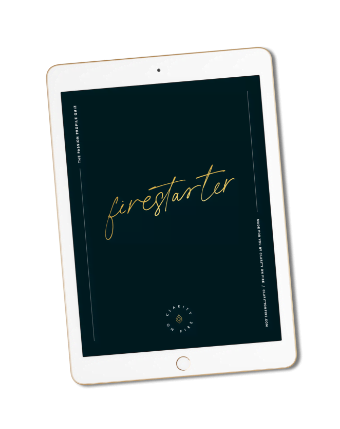When I used to sit hunched over in my cubicle, trying to muster the energy to slog through my work to-do list, I tried all sorts of tactics to make myself feel better about my situation. I frequented motivational blogs, searched for “how-to” articles about staying energized in the office, and read personal development books during my lunch breaks, hoping to find inspiration.
Some of what I read was legitimately helpful and mind-opening, but often I would come across well-meaning, but essentially useless advice that can be summed up in a few cliché phrases:
“Just think positively.” Sure, it’s great to think positively, but if you have to force positivity when you’re actually feeling miserable, it’ll just piss you off. And it’s hard to feel positive when you’re resenting positivity.
“Follow your dreams.” Yeah, following your dreams sounds lovely, but what if you have no idea what your “dream” is? Then this motivational cliché quickly becomes a depressing reminder that you have no clear direction.
“If you do what you love, money will follow.” Maybe that’s true for some people, but what if you love to hang out with your dog? Or drink wine with friends? Or binge-watch Scandal? Is someone going to pay you to do those things? Doubtful.
The positivity movement has become trendy, and for good reason — your thoughts really do impact how you view the world and what kind of actions you take. In a world that seems to magnetize negativity (just look at the news, or celebrity gossip blogs, or fear tactics in commercials), I’m glad people are opening up to motivational blogs and books about positive thinking. It’s about time!
But there’s a less popular, shadow side to the “rose-colored glasses” movement. When you’re so focused on forcing yourself to feel good and be grateful for a less-than-ideal situation, it can quickly turn into denial and/or rationalization. The result? Stagnation. Discontent. Inner conflict.
If I had stayed on that path of trying to force positivity and happiness at my soul-sucking desk job, I’d probably still be there, secretly feeling stifled and miserable beneath my inauthentic smiling face.
So what did I do instead? I allowed myself to actually feel the discomfort. I rode the emotional wave of my cubicle panic attack. I acknowledged how bored and drained and confused I felt so that I could actually try to change my situation instead of hide it with a positivity Band-Aid. And I hired a coach to help me navigate through the uncertainty.
Negative emotions aren’t some horrible, shameful thing that you need to hide or ignore — they’re often red flags that your current situation isn’t right for you in some way or another. And if you deny the bad feelings, you simultaneously deny yourself the chance to seek out something that’s way more authentic.
So go ahead, feel your negative feelings. But don’t stop there (because that would just be downright depressing) — make it your personal mission to figure out what energizes you and makes you feel most “you.” Get clear on your Core Desired Feelings (shout-out to Danielle LaPorte). And get some support along the way.
Not sure where to turn for support? Well stay tuned because pretty soon we’ll be launching a new program to help you create an escape plan from your miserable desk job, and you’ll get tons of one-on-one and community support along the way.
So tell us: What uncomfortable feelings have you maybe been ignoring? Let us know in the comments below, and share this blog with anyone who might need to hear this message today!
Much Love,
Kristen (& Rachel)



Such a great point about negative feelings not being shameful, Kristen. That’s something I’ve been working on a lot lately, and I’m getting better about just feeling it instead of immediately trying to fix it, but it’s funny how challenging it can be sometimes.
My biggie lately has been stress–as in, I pretend I’m not because those mythical “other people” have more on their plates than I do. Letting myself acknowledge I’m stressed out means I can figure out what I want to do about it instead of continuing to insist I function at my best in spite of it.